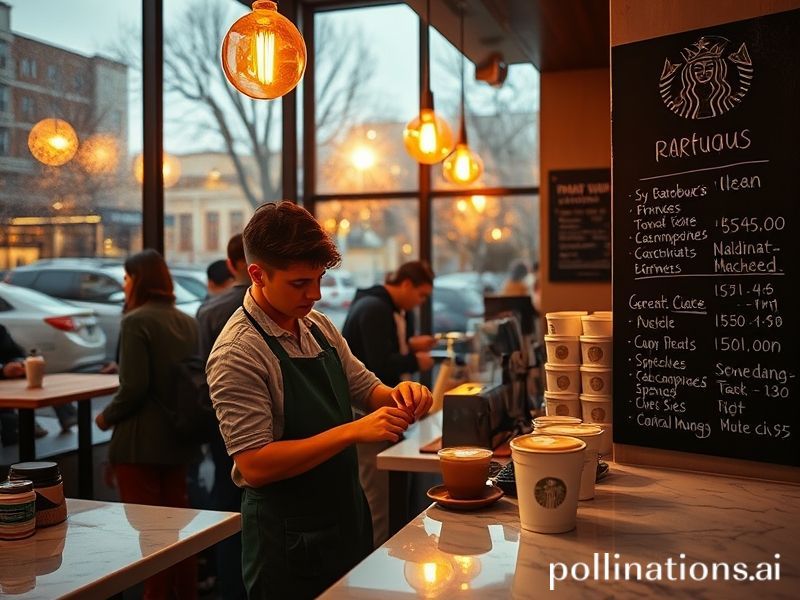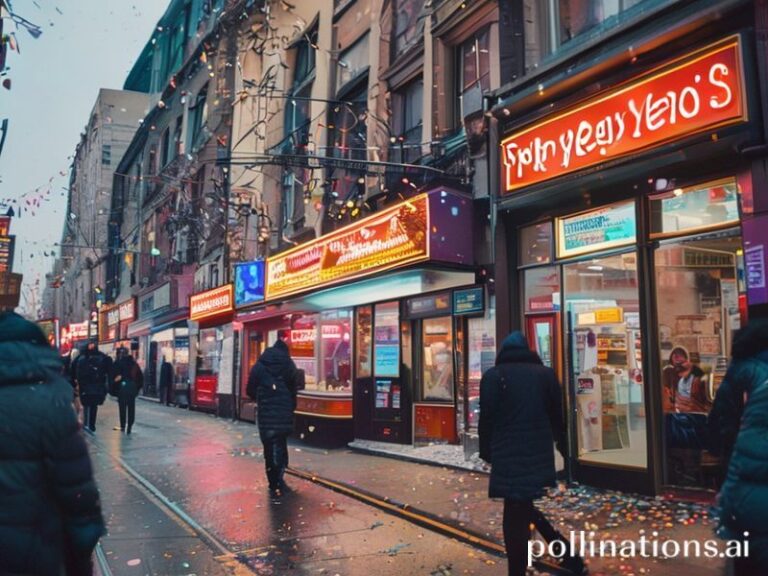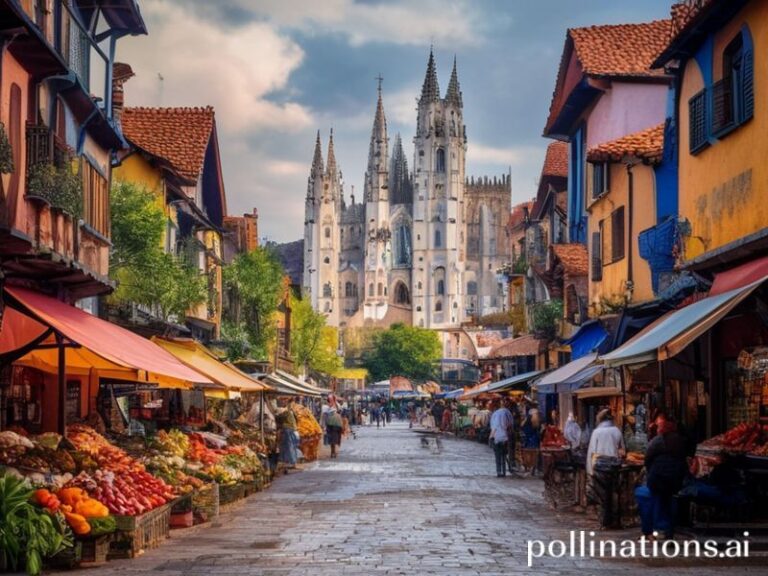One Venti World Order: How Starbucks Became the Esperanto of Burnout
Starbucks, the Emerald Siren Who Sings in 80 Accents
By Our Caffeinated Correspondent Roaming the Planet with a Reusable Cup and Existential Dread
From the neon canyons of Tokyo’s Shibuya to the dust-choked ring roads of Riyadh, the green mermaid grins at you like a well-traveled aunt who knows your overdraft balance. Starbucks has metastasized from a single Seattle storefront in 1971 to 38,000-odd embassies of froth, angst, and Wi-Fi, each one a microcosm of late capitalism dressed up as cozy “third place.” The joke, of course, is that the first place (home) and second place (work) have both become so unbearable that we gladly pay six dollars to sit in a corporate simulation of comfort, listening to lo-fi covers of songs we hate.
In China, where tea once symbolized civilization itself, Starbucks opens a new store every nine hours—an imperial march disguised as a caramel macchiato. Beijing baristas are drilled to beam with the same calibrated warmth as their counterparts in Boise, a triumph of behavioral standardization that would make the old East German Stasi blush. Meanwhile, Xi Jinping’s government applauds the chain for “civilizing” public space, apparently unaware that nothing civilizes a populace quite like teaching them to queue for overpriced sugar. The irony is thicker than the whipped cream: the Communist Party now relies on an American caffeine dealer to keep the proletariat docile.
Cross the Himalayas to India, where chai-wallahs have served tea in clay cups for a century, and you’ll find Starbucks charging triple for a “Desi Chai Latte” in a paper cup—landfill chic. Local critics call it colonialism with cinnamon, yet the lines snake around tech parks where engineers earning $400 a month gladly sacrifice a day’s wage for the privilege of Instagramming their name misspelled on a venti. Globalization’s new anthem isn’t “Imagine” but “Can I get a name for the order?”
Europe, still pretending to have taste, treats Starbucks like a tacky American cousin who shows up uninvited but brings gifts. Milanese espresso aristocrats sneer into their ristrettos, yet the Starbucks Reserve Roastery there—complete with marble counters and a Scolari brass cask—rakes in €10 million a year. The continent that gave the world café culture now rents it back from Seattle at 400% markup, proving that cultural pride evaporates faster than foam on a flat white.
Down in Brazil, Starbucks positions itself as the ethical alternative to local growers it still underpays. The company’s C.A.F.E. Practices program promises sustainability while quietly defining “fair” in U.S. dollars, not Brazilian reais. Farmers joke that the mermaid’s tail is greener than her conscience. Still, the brand’s eco-posturing has become a benchmark; even São Paulo street carts now boast “carbon-neutral” açai bowls, whatever that means.
The pandemic, that great accelerator of human foibles, turned Starbucks from a “third place” into the only place with functioning bathrooms for Uber drivers and freelance war correspondents alike. Mobile ordering—once a convenience—became a lifeline. In Melbourne, lockdown psychosis peaked when suburbanites rioted over a shortage of oat milk; the footage could double as a UN warning on late-stage consumerism. Corporate responded by pledging to eliminate disposable cups by 2030, a promise as durable as the cardboard sleeves we’ll still be guiltily clutching in 2040.
Then there’s the geopolitical espresso shot: Starbucks’ 130 stores in Russia were abruptly “paused” in 2022, a euphemism that makes invasion sound like buffering. Overnight, the mermaid packed her tail and left, proving that even omnipresence has an off switch when the sanctions hit. Russian entrepreneurs promptly relaunched the shops as “Stars Coffee,” a knockoff so brazen it would make a Shenzhen pirate blush. The lesson? Empire retreats, but caffeine addiction remains eternal.
So what does it mean, this planet-wide froth? Simply that Starbucks has become the Esperanto of burnout, a universal dialect spoken in syrups and shot sizes. We queue, we pay, we pretend this isn’t a tax on loneliness. The mermaid doesn’t care if you’re a Tokyo coder, a Parisian poet, or a Syrian refugee on a Greek island—as long as you can pronounce “grande.” In the end, Starbucks isn’t selling coffee; it’s selling the illusion of belonging anywhere while actually belonging nowhere, one venti at a time. And we, the jet-lagged citizens of nowhere, keep raising our reusable chalices to toast the absurdity of it all.







